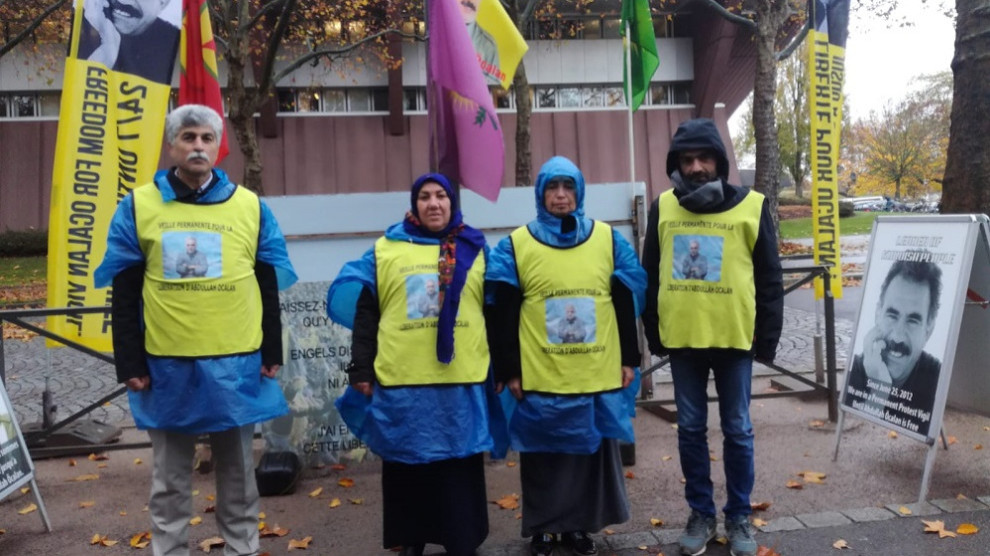Week 387 in the Freedom for Öcalan Vigil in Strasbourg
In its 387th week, the Freedom for Öcalan Vigil in front of the Council of Europe in Strasbourg was taken over by a group of activists from Germany.
In its 387th week, the Freedom for Öcalan Vigil in front of the Council of Europe in Strasbourg was taken over by a group of activists from Germany.

Launched in front of the Council of Europe in 2012 and carried out uninterruptedly to today, the Freedom for Öcalan Vigil is held seven days a week from morning to evening every day for the past seven years. Activists inform passers-by about the Kurdish People’s Leader Abdullah Öcalan and the Vigil itself.
The Vigil has been taken over this week by a new group of Kurdish activists coming from the German city of Heilbronn; Seyfettin Güner, Awaz Daray, Sultan Ateş and Vesiye Tikel.
A statement made on behalf of the Heilbronn group vowed that the action for the freedom of Öcalan would continue with determination. The activists stressed that they took strength from the resistance mounted in Rojava and other parts of Kurdistan.
Calling on the Kurds and all progressive circles to act immediately, the activists warned that inaction would lead to grave consequences for all peoples.
The Freedom for Öcalan Vigil started on June 25, 2012 to call for an end to the aggravated isolation imposed upon Öcalan and to raise awareness for his freedom. Before the vigil, a Long March was held from Geneva to Strasbourg in February 2012 and a hunger strike of 52 days was held during the months of March and April. Representatives from various institutions in Europe and politicians had participated in the hunger strike.
The Freedom for Öcalan Vigil was launched after these demonstrations, and in the seven years since, hundreds of thousands of flyers, brochures and booklets have been handed out and Öcalan’s ideas have been communicated to people from dozens of countries throughout the world.
More than two thousand activists have taken over the vigil up to date. Artists, politicians, journalists and European allies have taken part in person.